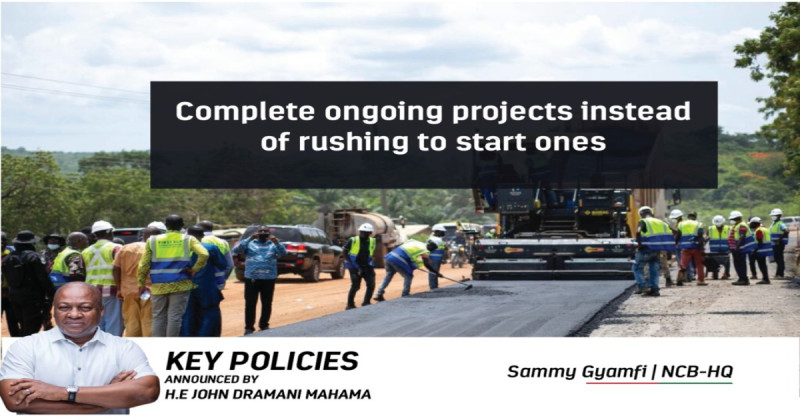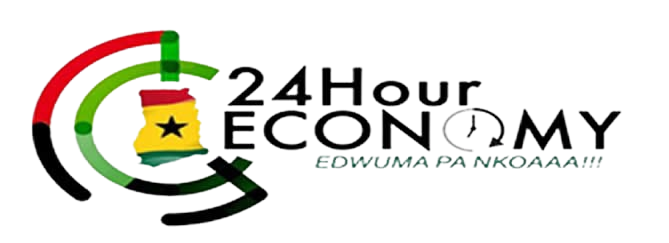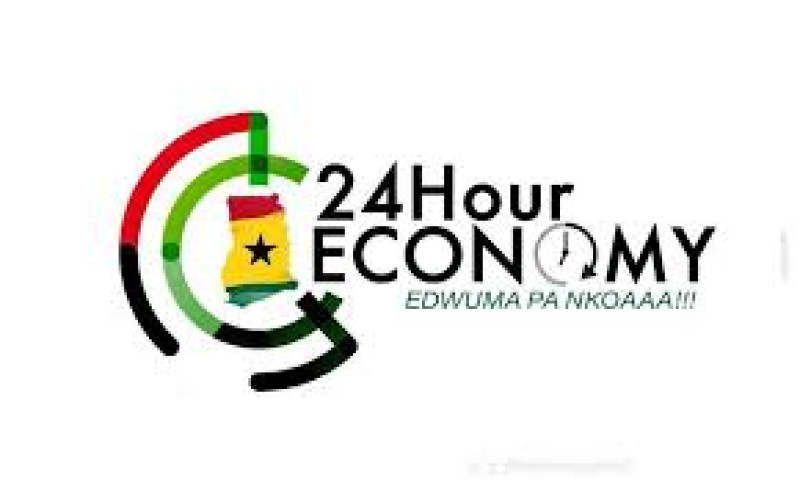
Charting a new course for Ghana's Development:24-hour economy vision-Prince Ibrahim
In a bold move to revitalize Ghana's economy, former President and NDC Presidential Candidate, John Dramani Mahama, has put forth a brilliant policy initiative: the transformation of Ghana into a 24-hour economy. This transformative vision, aimed at job creation and economic development stands as a testament to his innovative leadership.
If effectively implemented, this strategy could be a pivotal game-changer for the nation, offering a robust solution to pressing issues like high unemployment and stagnant industrial growth. Such a forward-thinking approach not only addresses current economic challenges but also paves the way for sustainable development and prosperity in Ghana.
Understanding the 24-Hour Economy Model
The concept of a 24-hour economy represents a fundamental shift in how a nation conducts its business and economic activities. It's about transforming the traditional 9-to-5 workday into a continuous cycle of productivity, where businesses and services operate around the clock. This change is not limited to just keeping retail stores open all night. It's about a holistic transformation that touches every corner of the economy, from factories churning out products at midnight to IT services being offered in the wee hours of the morning.
In this model, the entire infrastructure of the economy adapts to support 24-hour operations. This means that not only do shops and restaurants stay open, but also factories, government services, and even retail, banking, and logistic services also operate throughout the night. The goal is to make full use of all available resources at all times. For instance, a factory that operates 24/7 can produce more goods than one that works only during the day, leading to increased output and potentially more jobs and economic growth for the country.
Moreover, a 24-hour economy can dramatically change the lifestyle and consumption patterns of the population. It offers flexibility for people to shop, access services, and even work at hours that suit their personal schedules. This flexibility can lead to a more dynamic and vibrant urban life, with different sectors like entertainment and food services adapting to the new round-the-clock demand.
In essence, transitioning to a 24-hour economy means reimagining the rhythm of daily life and business, turning the traditional day-night cycle into a continuous loop of economic and social activity. This change holds the promise of increased efficiency, better utilization of resources, and the creation of a more flexible and accommodating economic environment.
SWOT Analysis: Ghana's Position
Strengths:
- Dynamic Youth Demographic: Ghana's youthful population is a vital asset. Their energy and adaptability can drive a 24-hour economy.
- Technological Growth: With increasing digital penetration, Ghana is well-positioned to leverage technology in this transition.
Weaknesses:
- Infrastructure Gaps: Challenges include underdeveloped road networks and a lack of robust transportation like railways. The fragile energy sector, heavily debt-ridden, is a major concern. Strategic investments and efficient management in these areas are essential.
- Workforce Preparedness: Transitioning to a 24-hour work culture requires a mindset shift. Nationwide education and sensitization campaigns are necessary to prepare the workforce for this change.
Opportunities:
- Economic Diversification and Growth: This model can stimulate sectors like IT, tourism, and retail, offering diverse opportunities.
- Employment Creation: It's a pathway to reduce the high unemployment rate, especially among the youth.
Threats:
- Health and Social Risks: The non-traditional work hours could pose health risks.
- Security Concerns: Ensuring safety during night operations is crucial.
Key Recommendations
- Infrastructure Development: Prioritizing investments in reliable power and transportation infrastructure is crucial.
- Regulatory Framework: Crafting policies that support 24-hour operations while safeguarding workers' rights is essential. This includes revising labour laws to accommodate night shifts and ensuring fair compensation.
- Economic Incentives: Offering tax breaks or subsidies to businesses that operate round-the-clock, especially in sectors like manufacturing and IT, could encourage participation.
- Education and Skill Training: Aligning Ghana's educational system with the demands of a 24-hour economy is vital. This includes vocational training programs focused on night-time economy skills.
- Pilot Projects: Implementing pilot projects in major cities like Accra and Kumasi can provide valuable insights and help in fine-tuning the approach.
- Safety and Health Measures: Establishing robust public safety measures and healthcare facilities to cater to the night-time workforce is imperative.
The Youth at the Forefront
Ghana's youth, as the primary beneficiaries of this transformative shift, must recognize the immense potential that John Mahama's vision for a 24-hour economy holds. Facing high unemployment rates, they stand to gain significantly from the plethora of job opportunities this change would bring. The transition to a round-the-clock economy promises not only employment but also exposure to diverse skills and innovative working environments, greatly enhancing their employability and entrepreneurial capabilities.
In conclusion, the vision of a 24-hour economy in Ghana, as proposed by John Dramani Mahama, is not just a policy shift; it's a cultural and economic revolution. It promises to harness the potential of Ghana's youthful workforce, address key economic challenges, and position Ghana as a forward-thinking, dynamic economy on the global stage. With strategic planning, investment, and a commitment to continuous learning and adaptation, this vision can indeed become a vibrant reality, setting a precedent for economic transformation in Africa.
The writer is a Business Operations Analyst and MPhil Operations Management student at UGBS with a research interest in the petroleum downstream sector of Ghana
Disclaimer: "The views expressed on this site are those of the contributors or columnists, and do not necessarily reflect 24houreconomy.org’s position. 24houreconomy.org will not be responsible or liable for any inaccurate or incorrect statements in the contributions or columns here."
Share On Social Media
24-HOUR ECONOMY
Economy
Related News
News

24-Hour economy policy a major improvement on past fragmented initiatives – IMANI Africa
Read More
GPHA launches full 24-hour operations at Tema and Takoradi Ports in response to presidential directive
Read More
















